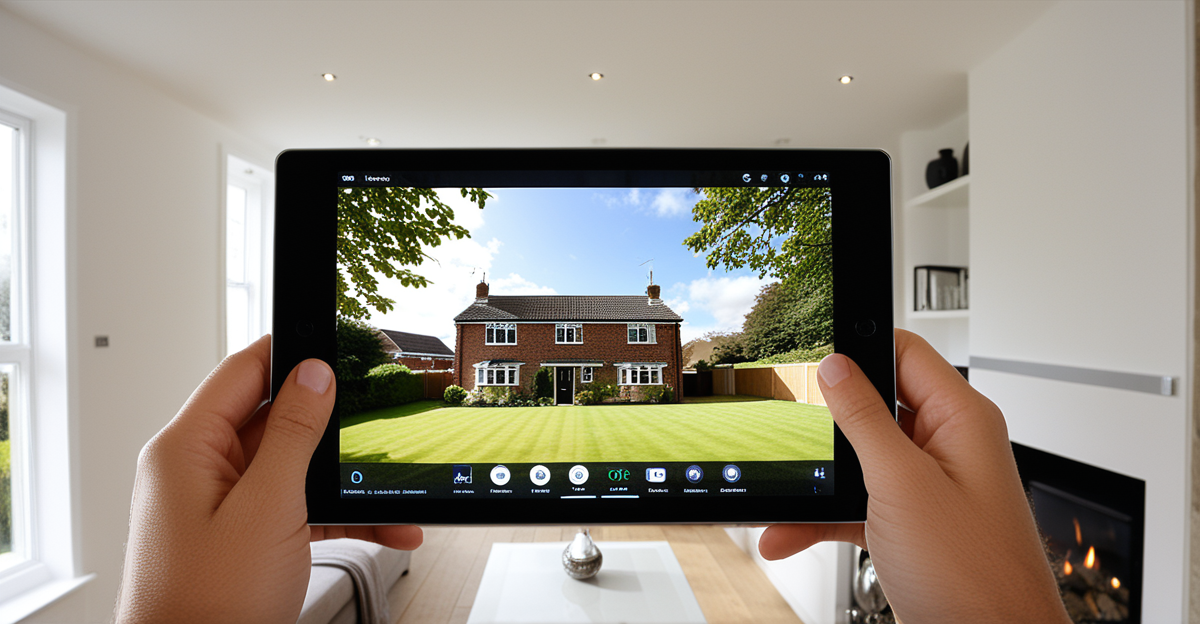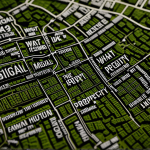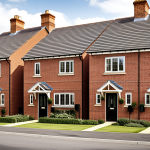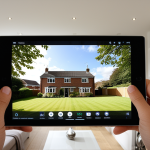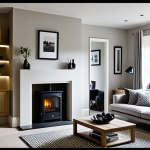Essential Smart Home Technologies for UK Homes
Smart home devices UK owners often prioritize include thermostats, lighting, security systems, and voice assistants. These popular smart home technology products deliver convenience and efficiency tailored to everyday household needs. For example, smart thermostats enable precise temperature control across various UK housing types, helping save energy and cut heating costs—a critical concern given the UK’s variable climate.
Lighting automation, such as motion-sensor bulbs and dimmable LED systems, enhances ambience and reduces wasteful power usage. Security solutions like smart cameras, alarms, and door locks respond to rising concerns about home safety by providing real-time monitoring and alerts accessible via smartphones. Voice assistants facilitate hands-free control, simplifying tasks like adjusting settings or playing music for all family members.
This might interest you : How Can You Transform Urban Apartments into Cozy Homes with Minimal Effort?
When selecting smart home automation UK products, it’s essential to consider compatibility with local infrastructure. Older or listed buildings might face installation challenges due to wiring or broadband limitations. Therefore, choosing devices compatible with UK electrical standards and robust Wi-Fi capabilities is crucial for seamless integration. Moreover, many devices are designed to work within diverse UK housing environments, offering adaptability—from compact flats to detached houses—ensuring reliable performance and user-friendly experiences.
Essential Smart Home Technologies for UK Homes
Smart home devices UK offer a wide range of options that cater to diverse homeowner needs and the unique characteristics of UK housing. Among the popular smart home technology categories, thermostats, lighting systems, security devices, and voice assistants stand out as foundational elements for effective smart home automation UK.
This might interest you : How Can Small Changes in Home Décor Enhance Your UK Living Space?
Smart thermostats, such as those compatible with UK heating systems, allow precise temperature control and scheduling. This aligns with typical UK preferences for efficient heating management and reduces unnecessary energy consumption. Similarly, smart lighting solutions offer customizable ambiance and energy savings by adjusting brightness according to occupancy or time of day.
Security technologies including smart locks, motion sensors, and CCTV integrate seamlessly to safeguard homes while providing remote monitoring. Voice assistants tailored for UK users facilitate hands-free control of multiple devices, offering convenience especially in busy households.
It is important to consider UK-specific factors like the diversity of housing types—from flats to detached homes—and challenges related to older wiring or broadband infrastructure. Selecting smart home devices UK with flexible connectivity options, such as Wi-Fi and Zigbee, ensures compatibility and reliable performance. Understanding these essential technologies empowers UK homeowners to build adaptable, efficient smart home automation UK suited to their lifestyle.
Benefits of Integrating Smart Technology in Your Home
Smart home devices UK homeowners adopt often highlight significant convenience improvements. Imagine adjusting your heating before you even arrive, or turning off all the lights with a simple voice command—all contributing to stress-free daily living. The benefits of smart homes extend beyond comfort; these technologies actively promote energy efficiency. For example, smart thermostats learn your schedule, avoiding unnecessary heating or cooling, which is crucial given the UK’s fluctuating weather.
Cost savings on utilities come naturally with reduced energy use, easing household budgets—a major consideration for many UK residents. Security enhancements are another key benefit. Integrated smart alarms and cameras provide peace of mind by allowing users to monitor their property remotely, deterring potential break-ins.
Moreover, smart home convenience in the UK embraces future-proofing. Many products are designed to adapt to upgrades, ensuring your investment remains relevant as technology evolves. This adaptability also supports integration with emerging energy providers smart home UK solutions, offering options like smart meters or renewable energy systems.
In summary, embracing these technologies ensures efficient home living UK-wide, combining ease, safety, and ongoing financial advantages with a modern lifestyle tailored to local demands.
Benefits of Integrating Smart Technology in Your Home
Smart homes in the UK offer significant benefits that enhance daily life through increased convenience, energy efficiency, and improved security. One primary advantage is how smart home devices UK streamline routine tasks. For instance, voice assistants simplify managing multiple smart home automation UK components with simple commands, eliminating the need for manual adjustments.
Energy efficiency stands out as another key benefit of smart home technology. Smart thermostats and lighting systems adjust automatically based on usage patterns and occupancy, helping reduce unnecessary energy consumption—this leads to noticeable cost savings on utilities. Furthermore, smart security devices, like cameras and sensors, provide real-time alerts that bolster home safety and may contribute to lower insurance premiums.
Adaptability is crucial given the pace of technological change. Smart home automation UK products often support software updates and integration with new devices, ensuring future upgrades won’t require replacing entire systems. This flexibility helps users continuously optimize their smart homes without extra hassle.
Ultimately, adopting smart home devices UK offers practical advantages that improve comfort, cut costs, and safeguard your property while allowing UK homeowners to evolve their systems as needs change.
Compatibility and Regulatory Factors for the UK
Smart home compatibility UK depends primarily on adherence to British electrical standards and broadband infrastructure. Devices must support 230V power systems and plug formats common in UK homes. Additionally, robust Wi-Fi or alternative protocols like Zigbee ensure smooth operation across diverse buildings, from older flats to modern houses.
Understanding UK home tech regulations is crucial. Privacy laws tightly control personal data handling, so smart home devices must comply with GDPR standards. Security compliance involves encrypted communications and regular firmware updates to protect against cyber threats—essential in safeguarding sensitive information and home access.
Integration with UK-specific services boosts smart home automation UK value. For example, linking with energy providers smart home UK platforms allows real-time monitoring of energy tariffs and usage, optimizing household consumption according to cost and grid demand. Voice assistants configured for the UK market provide natural language understanding and access to localized services, enhancing usability.
By choosing devices aligned with UK regulations and infrastructure, homeowners can enjoy seamless, secure, and efficient smart home technology tailored to national standards and practical needs. This approach minimizes compatibility issues, ensuring a smart home system that performs reliably while respecting legal and technical frameworks in the UK.
Essential Smart Home Technologies for UK Homes
Smart home devices UK offer targeted solutions that meet the distinct needs of UK households. The most popular smart home technology typically revolves around thermostats, lighting controls, security systems, and voice assistants. These devices respond effectively to UK living conditions, including varied housing types and climate considerations.
Smart thermostats are crucial in UK homes due to their ability to integrate with common heating systems like gas boilers. By learning household patterns, they optimise heating schedules and reduce energy waste—addressing the country’s focus on energy efficiency. Lighting automation in UK homes often leverages motion sensors and dimmable LEDs, enhancing convenience while managing electricity bills efficiently.
Security remains a top priority, with smart locks and CCTV providing remote monitoring that fits UK safety concerns. Voice assistants not only control these smart home appliances but also offer compatibility with UK-specific services, such as local news or weather updates, ensuring users stay connected and informed effortlessly.
Key challenges include adapting devices for different UK property types, from historic flats to modern detached homes. Reliable integration requires considering smart home automation UK systems’ compatibility with existing wiring and broadband infrastructure. Selecting products designed to meet UK standards ensures dependable performance and user satisfaction across various home environments.
Essential Smart Home Technologies for UK Homes
Smart home devices UK owners frequently choose revolve around thermostats, lighting, security systems, and voice assistants, forming the foundation of effective smart home automation UK. Smart thermostats tailored to UK heating setups allow precise temperature scheduling, addressing variable climate challenges and helping reduce energy bills. Meanwhile, smart lighting systems with features like occupancy sensing and adjustable brightness deliver both comfort and energy savings, ideal for families managing different rooms and routines.
Security remains a key priority. Smart locks, CCTV cameras, and motion sensors provide real-time alerts accessible remotely, enhancing protection suited to both urban flats and rural homes. Voice assistants configured for UK users enable hands-free control and integration with multiple smart devices, simplifying management for all household members.
Considering the diversity of UK housing—from historic terraces with older wiring to modern detached homes—selecting smart home devices UK that support Wi-Fi and alternative protocols like Zigbee ensures reliable connectivity. This adaptability not only overcomes infrastructure challenges but also future-proofs smart home automation UK setups, enabling seamless expansion and integration with emerging technologies.
Essential Smart Home Technologies for UK Homes
Smart home devices UK homeowners favor most include thermostats, lighting, security systems, and voice assistants, each tailored to meet specific needs within UK households. Smart thermostats integrate seamlessly with UK heating systems, such as gas boilers, offering precise temperature control and scheduling to reduce energy waste and manage costs during colder months. This popular smart home technology aligns with UK preferences for efficiency amidst an unpredictable climate.
Lighting automation, another key element, often features motion sensors and dimmable LEDs, enabling users to create the perfect ambiance while minimizing electricity consumption. Security devices like smart locks, CCTV, and motion detectors address growing concerns about home safety, granting remote monitoring capabilities that heighten protection.
Voice assistants play a vital role in smart home automation UK by simplifying control of multiple devices through natural language commands, often customized for UK accents and regional services. When considering these technologies, UK housing diversity—from flats with limited wiring options to spacious detached homes—requires careful selection of compatible devices that function reliably within local broadband and electrical infrastructure constraints. Prioritizing smart home devices UK designed with flexibility and compatibility ensures a smooth, efficient smart home experience tailored to British living environments.
Essential Smart Home Technologies for UK Homes
Smart home devices UK homeowners often select include thermostats, lighting systems, security solutions, and voice assistants, reflecting popular smart home technology that fits UK living conditions. Smart thermostats designed for UK heating systems help manage energy by learning household routines and adjusting heating schedules accordingly. This not only lowers bills but addresses the UK’s changing climate needs effectively.
Lighting solutions often involve motion sensors and dimmable LEDs, offering control that conserves electricity while enhancing home ambience. This form of smart home automation UK appeals particularly to those mindful of energy efficiency and ease of use throughout different times of day.
Security remains a pressing concern in the UK, leading to high demand for smart locks, cameras, and motion detectors that deliver real-time alerts accessible remotely. Such devices integrate seamlessly into various UK housing types, from historic terraces to newer detached homes.
Additionally, voice assistants configured for UK accents and services facilitate effortless control of multiple smart home devices, further streamlining smart home automation UK. Crucially, compatibility with local wiring and broadband infrastructure ensures these technologies function smoothly across diverse UK properties.

